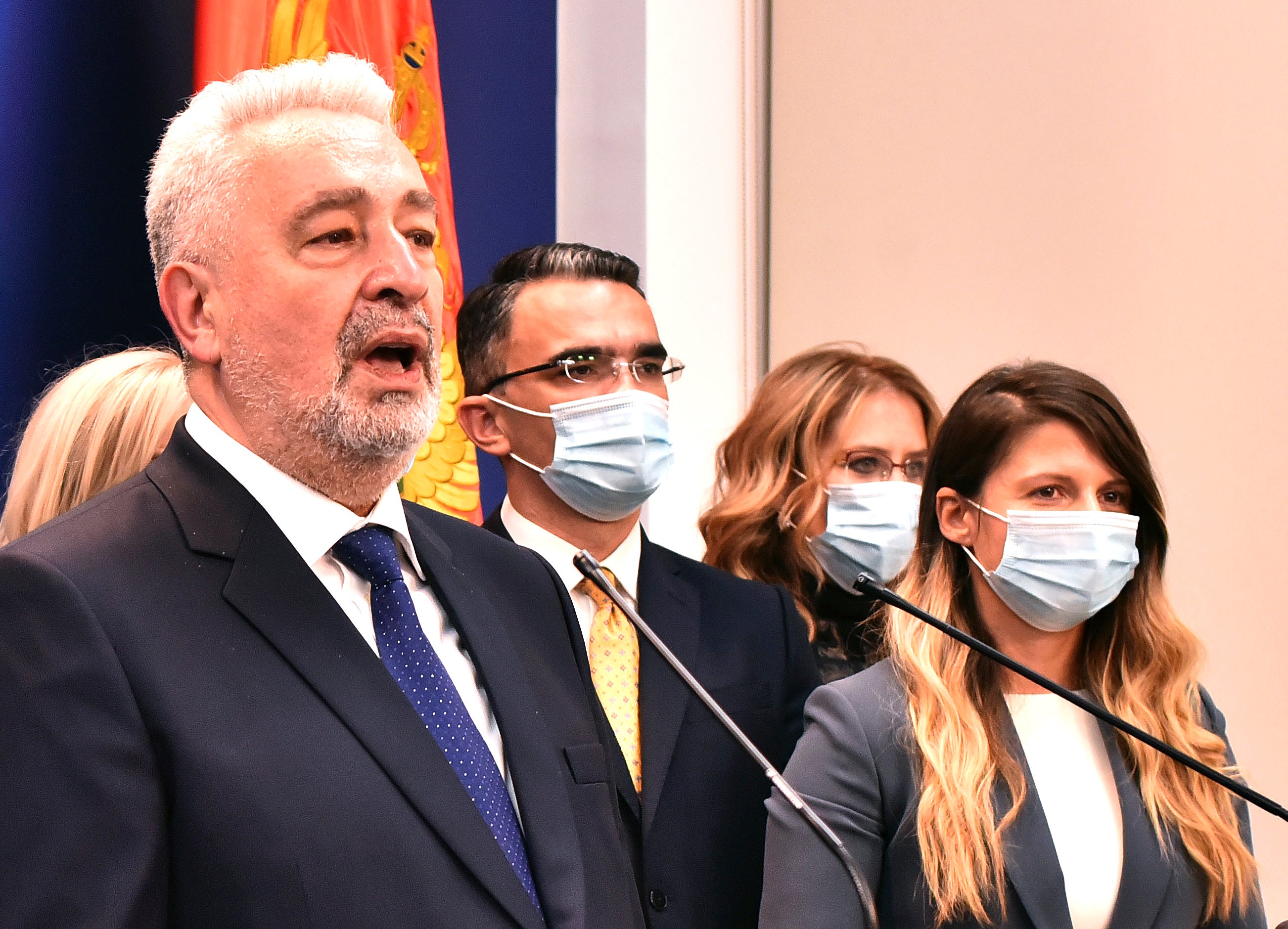Montenegro's parliament approves new, pro-Serb government
Montenegro’s parliament has voted to approve a new conservative, pro-Serb coalition government, which will succeed a pro-Western party that has ruled the small Balkan nation for almost three decades

Your support helps us to tell the story
From reproductive rights to climate change to Big Tech, The Independent is on the ground when the story is developing. Whether it's investigating the financials of Elon Musk's pro-Trump PAC or producing our latest documentary, 'The A Word', which shines a light on the American women fighting for reproductive rights, we know how important it is to parse out the facts from the messaging.
At such a critical moment in US history, we need reporters on the ground. Your donation allows us to keep sending journalists to speak to both sides of the story.
The Independent is trusted by Americans across the entire political spectrum. And unlike many other quality news outlets, we choose not to lock Americans out of our reporting and analysis with paywalls. We believe quality journalism should be available to everyone, paid for by those who can afford it.
Your support makes all the difference.Montenegro’s parliament on Friday voted to approve a new conservative, pro-Serb coalition government, which will succeed a pro-Western party that has ruled the small Balkan nation for almost three decades.
Prime Minister Zdravko Krivokapic' cabinet is dominated by unelected technocrats, and its approval follows more than three months of negotiations with coalition partners after their narrow victory in August parliamentary elections.
Lawmakers in the 81-seat parliament voted 41-28 Friday for the new government, with 12 abstentions.
Krivokapic is a 62-year-old former university professor and political novice. His coalition was formed with the main goal of unseating the long-ruling DPS party of Montenegrin President Milo Djukanovic whom it accuses of rampant corruption, links with organized crime, and “dictatorship.”
Djukanovic and his government defied neighboring Serbia and its ally Russia to join NATO in 2017, and have brought the country of some 620,000 people to the threshold of the European Union.
Krivokapic has promised to abide by NATO membership obligations and to work on speeding up EU accession, despite demands from his own coalition for closer ties with Slavic allies Serbia and Russia.
The new prime minister has said his cabinet’s priorities will be to fight the coronavirus, bring the country out of a deep economic crisis triggered by the pandemic, and ensure what he called the “real rule of law.”
He also pledged good relations with Serbia and other neighbors, and promised to work on creating conditions for holding what he called the “first fair democratic elections” in Montenegro.
Krivokapic is considered close to the Serbian Orthodox Church which led months of protests in Montenegro against a law passed by the previous government that the church said would impound its property in Montenegro. The former government rejected those claims.
Although they pledged to vote for the new government, the coalition officials criticized Krivokapic’s choice of government ministers and his position that Montenegro should continue on its pro-Western course. They said politicians, instead of technocrats, should lead the new government.
“If everything will remain the same, we shouldn’t have taken part in the election,” said Milan Knezevic, a leader of the largest pro-Serb group in the new governing coalition.
Serbia and Montenegro were part of the same country before an independence referendum in 2006 led to Montenegro splitting away.
Montenegro remains deeply divided among those seeking closer ties with Serbia and Russia and those who view Montenegro as an independent state allied with the West. Serbs represent about 30% of its population.